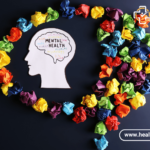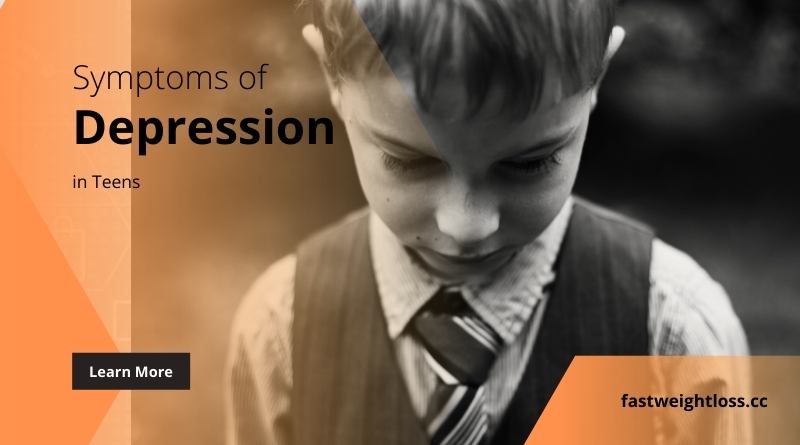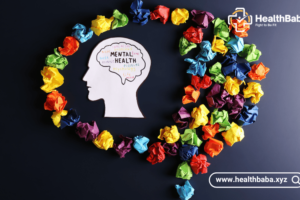Teen depression is often associated with parents being depressed, so it’s important to pay attention to family dynamics. Symptoms of teen depression may include withdrawal from friends or family, chronic fatigue, changes in eating or sleeping habits, feelings of guilt, anger, anxiety and hopelessness. For many teens, teen depression can also lead to self-harm.
Is my teen depressed?
Although sometimes the teens will suffer from depression, it can change. The negative effects on adolescents are beyond melancholy. Depression can ruin the character of a teenager and cause an overwhelming sense of sadness and frustration. Many rebellious or dangerous behavior in adolescents may indicate depressed behavior. How does a young person react to emotional pain? Persistent negative mood? Frequent crying and hopeless feelings are common symptoms of depression.
Make physical health a priority
Good health is a priority for the U.S. population, but not everyone puts it as high on their list as they should. Our bodies are our most valuable asset and without them, we cannot do anything. Today’s society is mainly focused on mental health, which is very important, but it does not take care of all aspects of a person’s life. Physical health should be a priority to anyone who wants to live a healthy lifestyle.
Encourage social connections
Many people say social connections are important in life. Some people take these connections for granted, but others do not. If you do not have strong interpersonal relationships in your life, you may feel isolated and alone.
The goal of this article is to provide techniques and suggestions for developing and maintaining quality relationships in your life.
Our society is constantly becoming more and more focused on technology and less on human interaction.
How is teen depression diagnosed?
Some signs of depression in adolescents include:
- Sadness or low mood most of the day, every day
- Significant weight loss or gain
- Loss of interest in activities that were once enjoyable
- Feelings of worthlessness, guilt, hopelessness; thoughts of suicide
Causes of teen depression
Many teens suffer from depression because of stress, traumatic life events, social problems, or any combination of the three. Some people have a genetic predisposition to depression, while others might have had a parent with depression. In some cases, teens might be dealing with more than one stressor at a time.
A few common things that can lead to depression in teens are: loss of loved ones, natural disasters, violence and bullying.
Support your teen through depression treatment
Depression is a serious illness that should not be taken lightly. The symptoms of depression vary from person to person, but often include feelings of sadness, hopelessness, thoughts of suicide, weight changes, fatigue, sleep issues and mood swings. Unfortunately, many teenagers struggle with this mental health issue. Approximately 7% of 13-17 year old teens experience a depressive episode in a given year and 20% of young people develop depression before they turn 18.
Depression in teens versus adults
The rate of teens with depression has been steadily increasing. From 1994 to 2003, the number of children seeking mental health care increased by 67%. In a survey conducted in 2014, 7% of adolescents aged 12 to 17 were found to have a major depressive disorder. This is worrying, because depression in adolescents can have serious consequences that can last into adulthood.
In February 2000, a 14-year-old male named George committed suicide after suffering from severe depression for over a year.
What is teen depression?
Teen depression is a very serious mental health disorder. It can have an effect on the way teens think, feel, and behave. The symptoms of teen depression are often similar to other illnesses making it difficult for parents to notice that their teenager may be coming down with what can be a life-threatening illness.
Teen depression is a very serious mental health disorder that can have an effect on the way teens think, feel, and behave.
Tell me the warning sign of teenage suicide?
Teenage suicide is a major problem in today’s society. You may not think that teens are struggling with it, but they are. It’s time to make the topic of teen suicide more visible and bring light to this epidemic.
The warning signs of teenage suicide are often easy to miss because teenagers are good at hiding their pain. The warning signs can be seen as personality changes or withdrawal from friends or family members.
How is teen depression treated?
Teen depression is a serious condition that needs to be taken care of immediately. Fortunately, there are several helpful treatments available for teens suffering from depression. For instance, doctors may prescribe antidepressants or refer the patient to a therapist for further treatment. Other treatments include therapy and mood stabilizers. It’s important to note that therapy can be a more long-term solution, while medication is meant as a short-term solution to help alleviate the symptoms of depression.
How to help a depressed teenager?
Depression is one of the most common mental health disorders among adolescents. Adolescents are more likely than adults to report depression because their brains are still developing and they may be more sensitive as a result. Depression is also more common in those with younger parents, lower grades, or those who skip school or use substances such as alcohol or illicit drugs.
Does depression medicine work for teen depression?
Many studies show that teens who take antidepressants to treat their depression report feeling happier and less stressed. Some side effects of antidepressants, such as nausea and weight gain, can be managed with medication or adjusting other medications.
A seemingly bleak future can be a daunting thought for any teenager to face and sometimes the only solution is to feel better. For those suffering from depression, there are many factors that can contribute to their illness such as genetics, family history, environment and life events.
Understanding teen depression
Teen depression is a serious condition that, unfortunately, often goes untreated. It can have devastating effects on both mental and physical health. Resilient teens are those who are able to overcome hardships without succumbing to the pressures of life. They are not defined by their depression but rather experience it as an unfortunate circumstance in their lives.
How can you spot depression in a teenager?
One of the most dangerous and alarming mental illnesses teens face is depression. Depression can be difficult to spot in someone because it does not always look the same in every person. While some people might show signs of sadness or crying, others may seem aggressive or withdrawn. It is crucial for parents and teachers to be aware of how their young charges are feeling so they can help if necessary.
Risk factor for teenage depression?
- A person’s sense of identity
- A person’s relationships
- A person’s family
- A person’s school environment
- Child abuse
- Mental health disorders
Symptoms of teenage depression?
Every teen goes through a range of emotions and moods, but when teens with depression symptoms experience intense sadness, irritability, low self-esteem, and an inability to sleep or eat.
Depression in teenagers is not uncommon with about 20% experiencing symptoms at any one time.
Depression in adolescence is often caused by social and environmental factors such as bullying, negative school experiences or pressure from parents or peers.
Why do adolescents get depression?
Many people are unclear what causes depression, but some professionals believe that the widespread use of technology is a significant factor. Dr. Gary Small, director of UCLA’s Semel Institute for Neuroscience and Human Behavior, who did a study with his colleagues on the phenomenon, saw that “teens who spent five or more hours per day watching TV or playing video games were twice as likely to develop major depressive disorder in their lifetime.
Best way to treat teenage depression?
The best way to treat teenage depression is by getting professional help. Therapists are trained to deal with difficult mental states, so they can often offer invaluable insights into the patient’s condition. Taking medication for depression is an option that has shown success in treating patients, but it should be combined with therapy to provide the most effective treatment. There are also other options — for example, a psychologist may prescribe supportive counseling sessions or recommend support groups for teenagers suffering from depression.
How can psychotherapy help with teen depression?
The word “depression” is used to describe a variety of emotional states and disorders, but in general it is characterized by feeling sad, hopeless and helpless. Although many people experience sadness or disappointment in their lives, people with depression cannot seem to shake negative thoughts and feelings that linger over time. This can lead to broken relationships, poor academic performance, and suicidal thoughts. It’s estimated that teens are more than twice as likely as adults to have depression.
What can parents do to alleviate teen depression?
Children and adolescents that suffer from depression often experience loneliness, self-blame, and an inability to control their moods. When teenagers feel this way, they may become disconnected from others and withdraw from them in order to escape the pain. Parents can help alleviate depression in their children by talking with them about their problems and encouraging them to find solutions, such as taking a break from social media or going for a walk outside.
Suicide warning signs in depressed teens
It is important for parents to know the warning signs of their children’s depression. If a teenager is experiencing symptoms such as sleeping or eating less, withdrawing from friends and family, having suicidal thoughts and making irresponsible decisions, they may be depressed. It is vital to reach out for help before it will become too late.
– Research has shown that teens with depression often experience changes in their sleep or appetite.
Know when to seek professional help
Depression is a crippling emotion that leaves millions feeling hopeless and isolated. Often times, it may be tempting to try to manage depression alone, but this can be dangerous. The key to dealing with depression is knowing when to let go of self-care and reach out for professional help. One way to do this is by talking about your feelings regularly with someone who cares, or by seeking help from a mental health professional.
Can teen depression go away without medical treatment?
Depression in teens can be treated successfully with either medications or therapy. Some people prefer to use an alternative like yoga or acupuncture to deal with depression. Some people might think that depression in teens will go away without any form of treatment, but the reality is that depression does not just disappear over time.
A person’s life history affects their vulnerability to beginning to experience depression.
Can teen depression run in families?
Some people assume that if a family has a history of mental health diagnoses, their kids will too. But the truth is, it’s difficult to tell who will and won’t develop a mental illness based on a family’s history of mental health issues alone. In fact, research from the National Institute of Mental Health suggests that genetics only account for about half of the risk of developing depression or another mental illness.
What other treatments can help with teen depression?
There are a wide variety of treatments that can help with teen depression, including group therapy, medication, and more. Parents should talk to their child’s doctor about these options and what would be the best for them.
Here are some other treatments that might be beneficial for your teen:
– Group therapy: This is a type of psychotherapy where teens spend time with other people who have been diagnosed with depression.
How to communicate with a depressed teen?
Depression is a serious mental health issue that affects millions of adolescents each year. Adolescents may be reluctant to open up about their depression, but there are a number of ways parents can communicate with their teen and help them feel supported.
It is important for parents to be patient and understanding as they work to build a trusting relationship with their child. Encourage your adolescent to talk about what’s troubling them and listen without judgment or criticism.
Medication comes with risks
Psychiatric medication comes with risks, but it is often necessary for patients to take such risks in order to lead a healthy and normal life. Not taking medication can cause a variety of troubles, including addiction and low self-esteem. Medication is not without its own problems, but it is one of the best resources we have for mental health.
Psychiatric medication comes with many risks and dangers that may outweigh the benefits.
Selective serotonin reuptake inhibitors (SSRIs)
The use of selective serotonin reuptake inhibitors (SSRIs) has become increasingly more common in recent years for treating depression. Experts have concluded that there is no strong evidence suggesting the drugs are effective for people with severe depression, but it may be useful for people who experience mild to moderate symptoms. SSRIs work by affecting the chemicals in the brain called neurotransmitters, specifically serotonin.
In conclusion, depression is a serious mental health condition that can lead to suicide. Parents should monitor their children’s behaviors and be aware of the warning signs of depression, such as increased anxiety, negative thoughts, and changes in sleep.
It is important for parents to monitor their children’s behavior and be aware of the warning signs of depression. There are many symptoms that could lead to suicide if left untreated.
















Add Comment